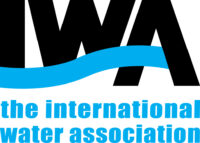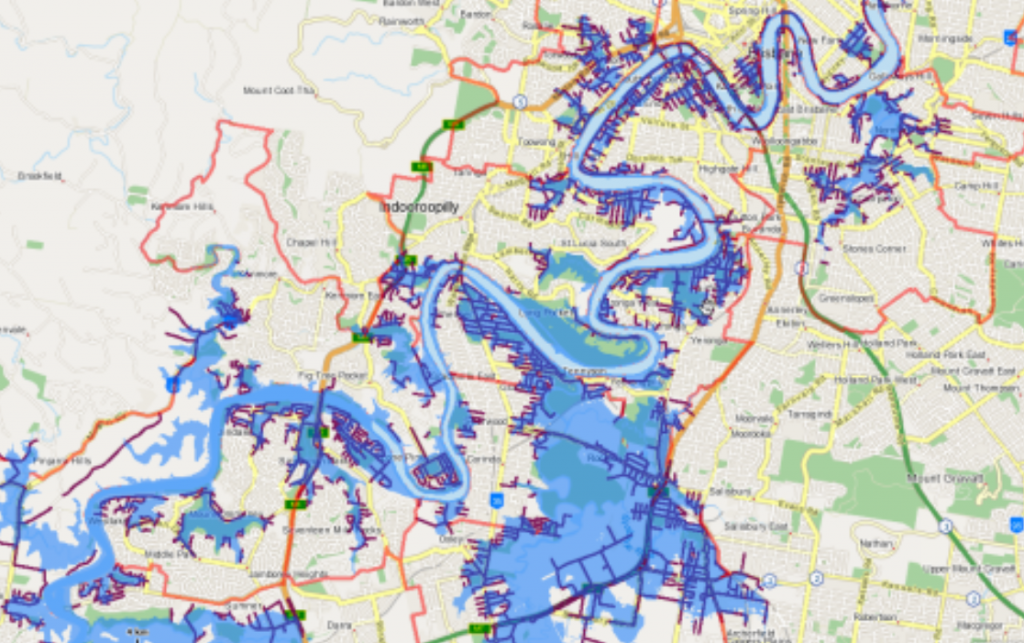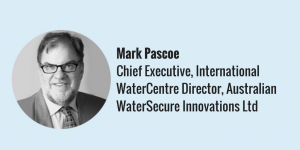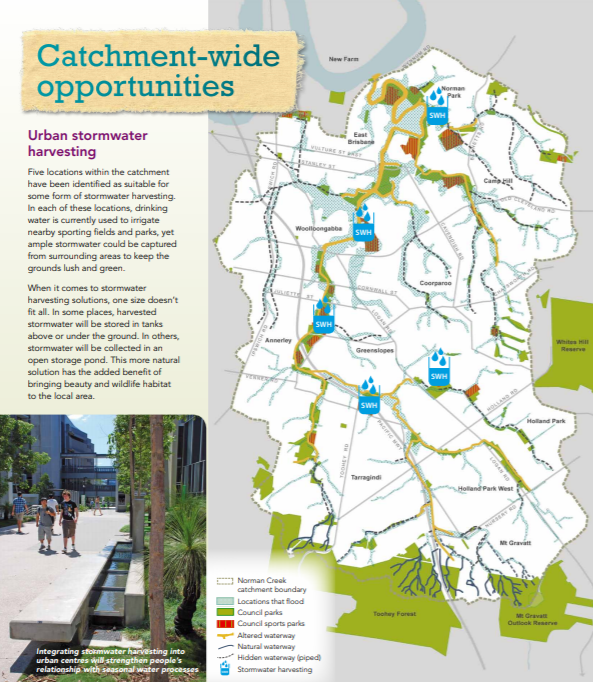Brisbane’s Water Vision and Challenges
Brisbane has come a long way on the water wise journey. From a small outpost that struggled to provide its residents with clean drinking water during the early 1800s, Brisbane has become a sophisticated city that manages water at all stages of the water cycle and is known for its leading edge management of water in flood and drought.
Water defines Brisbane as a river city. It provides a sense of place through 4,000 kilometres of waterways; that supports the population, biodiversity and extensive natural areas. Brisbane is renowned for its riverside location, subtropical climate and friendly relaxed lifestyle – all of which attract businesses, workers, students and tourists from across the world.
Brisbane City Council’s long term vision is for Brisbane to be one of the cleanest and greenest of the world’s capital cities. That, “our subtropical open spaces and natural areas provide breathing spaces for the city” and “our river, creeks and bay are enhanced, protected and enjoyed by all.” Brisbane Vision 2031.
Integrated management of world class natural resources is an essential approach for a resilient and liveable city like Brisbane. In the past two decades, Brisbane has experienced the millennium drought (1995 – 2009) and two significant floods (2011 and 2013), and as a subtropical city it is also affected by frequent and severe storms. These experiences have driven Brisbane to adapt, recover and thrive in the face of these climatic events




